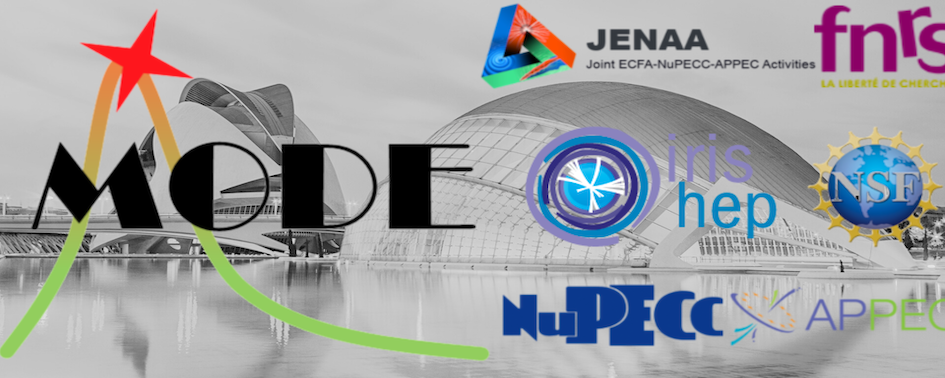Conveners
Particle Physics
- Emma Torro Pastor (Univ. of Valencia and CSIC (ES))
- Pietro Vischia (Universidad de Oviedo and Instituto de Ciencias y Tecnologías Espaciales de Asturias (ICTEA))
Particle Physics
- Pietro Vischia (Universidad de Oviedo and Instituto de Ciencias y Tecnologías Espaciales de Asturias (ICTEA))
-
Jan Kaiser23/09/2024, 11:30Particle Physics
Machine learning has emerged as a powerful solution to the modern challenges in accelerator physics. However, the limited availability of beam time, the computational cost of simulations, and the high-dimensionality of optimisation problems pose significant challenges in generating the required data for training state-of-the-art machine learning models. In this work, we introduce Cheetah, a...
Go to contribution page -
Dr Emanuele Coradin (University of Padova)23/09/2024, 11:50Particle Physics
Using a spiking neural network and a modeling of the silicon tracker for the CMS upgraded detector, we demonstrate the unsupervised learning application of identification of charged particle tracks in presence of background, and characterize the detection efficiency, fake rate, and differentiation of output signals for particles of different momenta and charge.
Go to contribution page -
Luca Castelli23/09/2024, 12:10Particle Physics
Muon collisions are considered a promising mean for exploring the energy frontier, leading to a detailed study of the possible feasibility issues. Beam intensities of the order of $10^{12}$ muons per bunch are needed to achieve the necessary luminosity, generating a high flux of secondary and tertiary particles that reach both the machine elements and the detector region. To limit the impact...
Go to contribution page -
Alexey Boldyrev (NRU Higher School of Economics (Moscow, Russia))23/09/2024, 12:30Particle Physics
The rapid development of ML and AI applications requires training a large number of models. One of the ways to organize training of them is the automated machine learning (AutoML) approach, where there is no human control over the training result. A crucial prerequisite for AutoML is the stability of the training model incorporated within it. This study presents an approach to identifying the...
Go to contribution page -
Florian Wolfgang Stummer (University of London (GB))24/09/2024, 11:30Particle Physics
-
Ritwika Chakraborty (PSI)24/09/2024, 11:50Particle Physics
-
Federico Nardi (Universita e INFN, Padova (IT) - LPC Clermont)24/09/2024, 12:10Particle Physics
Setup design plays a pivotal role in experiment development, particularly in high-energy physics, where vast temporal and spatial scales dictate the course of research for decades. Our research, embedded in the MODE Collaboration, aims to generalize Machine Learning tools for creating a differentiable pipeline capable of suggesting optimal configurations for the Muon Collider Electromagnetic...
Go to contribution page -
Jan Kieseler (KIT - Karlsruhe Institute of Technology (DE))24/09/2024, 12:30Particle Physics
